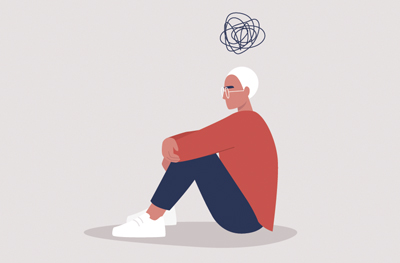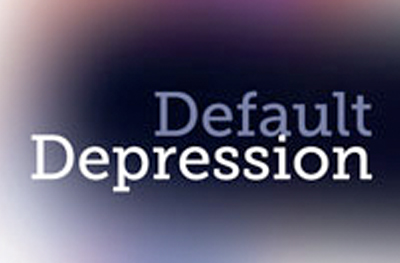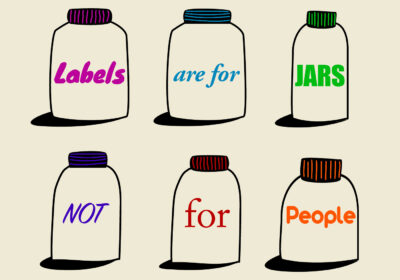Disturbing thoughts are danger signs that should not be ignored. This post “About Disturbing Thoughts” details key indicators of these problematic thought patterns.
• Thinking things are hopeless and won’t change in the future
• Thinking or saying to yourself:
− life isn’t worth living, or
− people would be better off without me, or
− nothing is ever going to get better, what’s the point of going on, or
− there will be no end to the mental/emotional pain I’m feeling, or
− my relationship/marriage is in such trouble I just can’t bear it; I don’t want to go on….what’s the point?
• Thoughts about death and dying, and how people would cope without you
• You have had thoughts about:
− what you might do to yourself to end your life
− when and where you would do it
− what you might use to end your life
− who you would put in your will, and the instructions you would leave for people, or the note you would write, for after your death.
• Thoughts about hurting others
• Thoughts about harming or mutilating yourself
• Being very suspicious about other people’s intentions towards you
• Thoughts that you are being persecuted, taken advantage of or wronged in some way
• Being preoccupied with intrusive thoughts or perceptions that are important to you, but which others don’t understand or accept the importance of.
Feelings that often accompany disturbing thoughts:
• Feeling an overwhelming sense of failure in life
• Feelings of emotional/mental pain that are almost unbearable and seem to get no better
• Feeling hopeless and helpless much of the time
• Feeling sad, miserable and/or depressed for days at a time
• Feeling unsafe
Behaviours that sometimes accompany disturbing thoughts:
• Becoming withdrawn, avoiding people and social events
• Increasing use of alcohol or other drugs to try to cover feelings of mental pain and hopelessness
• Becoming secretive about your thoughts and feelings of hopelessness and helplessness
• Being careless, taking needless risks, acting dangerously, or putting yourself in harm’s way
Thoughts, feelings and behaviours of this kind need to be taken very seriously. Do not ignore them.
Some things to consider if you are experiencing suicidal thoughts:
- No matter how bad your situation, no matter how overwhelming your mental/emotional pain, there is always a better option than considering suicide or self-harm – but it may not have occurred to you. Speak to a doctor (and other help can follow). Or phone a 24 hour Mental Health Crisis line.
- When people kill themselves, it seriously affects their family and friends. Feeling “They’d be better off without me” doesn’t cancel out the fact that they would be greatly damaged – perhaps for life.
- Promise yourself (and someone else) that you will get help, that you will do it now, and you will not give up until you get it.
- Suicidal thinking may be associated with depression but can also be associated with anxiety and distress.
- Break your silence and isolation: get help NOW.
- Feelings of hopelessness, helplessness, and overwhelming mental/emotional pain can be turned around with appropriate treatment.
- If you think a particular problem has brought you to this point, try using Structured Problem-Solving (included in this section).This may ‘take some pressure off ’. However, still speak to a doctor about your mental state.
- Who are the people who really matter to you? Think about why they do care, and the good things that have happened between you.
If you have a gun, rope, pills, or anything else you’ve thought of using (or that is readily available) to kill yourself, either lock them up and give the key to someone for safe keeping, or hand them over to someone, so you are kept from harm’s way until you have received help and are better.
Things can feel very different and look very different; energy, motivation, problem-solving ability, and hope for the future can be restored if you act with courage and speak to a doctor or phone a Mental Health Crisis Line.
More powerful than all problems is the courage to deal with them.
To help someone else – Important Reminder
- First and foremost recognise that you are not responsible for someone else’s suicidal behaviour. You have no control over the person’s will. If the person chooses to act in a self-harming or destructive way, he/she has chosen to do so; he/she is responsible.
- Asking a person if he/she has suicidal thoughts will not encourage the person to act on these thoughts, but will signal genuine concern and an avenue of hope.
People who are experiencing suicidal thoughts, whether depressed or not, may not be easy to help. They may have become secretive and evasive, or may be so depressed or troubled that they view everything as pointless except ending how they feel. Persevere anyway.
Useful tips for helping someone who may be suicidal
• Think about the best way to approach the person – given what you know about his/her personality and temperament. Let the person know that you are seriously concerned.
The most important aim is to keep the person safe.
Suggest that he/she might see a doctor immediately or speak to a health professional recommended by a doctor − or ring a 24 hour Mental Health Crisis Line. Help the person to make the appointment or phone call. Offer to take or go with him/her to receive assistance.
- If you think the person won’t listen to you, then consider who he/she usually confides in, feels comfortable with and/ or trusts. Maybe this nominated person could make the approach and encourage the person who may be depressed to seek assistance.
- Provide the person with a 24-hour crisis line number.Try to get the person to put the number where it won’t be lost and will be accessible.
- Enlist the help of relatives or friends to keep a watchful eye on the person, to break his/her isolation, and to provide extra safety.
- Maybe you can help the person to work through a major problem rationally, resolve a relationship conflict, or get a new perspective on things.
- Encourage the person to think about what is valuable, worthwhile and precious in his/her life. As well, encourage the person to recognise who depends on and values him/her.
- Be as determined and resourceful as you can in finding a way to get the person to a doctor or appropriate health professional (or to seek help by phoning a Mental Health Crisis Line).
- Emphasise that mental/emotional pain, depression, low energy, and feelings of hopelessness and helplessness can be quickly turned around with appropriate treatment from a doctor. Left untreated, the person’s mental state may deteriorate. The risk of acting on suicidal thoughts and feelings increases without treatment.
- Negotiate to take charge of any readily available means for acting on suicidal thoughts or impulses, such as guns, knives, rope, pills, car keys (if you think a vehicle might be used).
- Try to get agreement on a No Harm/Seek Help promise
(an example is included below). - Be determined, but respectful.
- Listen to the person carefully.
- Think safety.
- Avoid being overdramatic; be calm and thoughtful.
- Remind yourself that you are not responsible for someone else’s suicidal behaviour.
The resource Policing and Managing Unruly Thoughts may be helpful.






